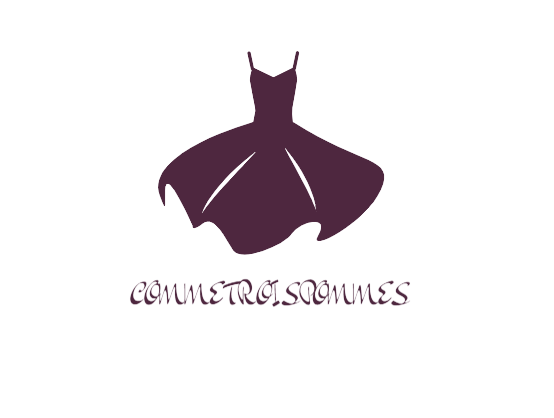Living and working in the fashion industry—it’s a dream come true for any fashionista. But it’s not easy to get a foot in the door in such a competitive field. For would-be designers, internships are a great way to gain valuable experience and make the necessary connections to eventually become a successful fashion designer. Whether it’s working for a clothing label, a marketing firm, or a major fashion house, internships offer aspiring professionals the opportunity to observe, learn, and grow in the world of fashion. In this article, we will explore different fashion design internships and what they hold for those eager to work in the fashion industry.
1. An Overview of Fashion Design Internships
Fashion design internships allow those passionate about the fashion industry to gain valuable experience and knowledge of the industry. Whether it’s fashion marketing, sales, production, or just fashion in general, internships give you the opportunity to develop key skills in the world of fashion. Here is a breakdown of some of the key aspects of fashion design internships:
- Design – Many fashion design internships will provide you with the opportunity to work on creating and designing collections for well-known fashion houses. You will be expected to have expert knowledge in fabric and clothing design, color theory and CAD software.
- Textiles – Interns may also be tasked to research the latest textile trends, source materials and oversee the manufacturing process.
- Marketing – Internships may ask you to develop promotional campaigns and devise retail strategies for fashion companies.
- Administration – Interns may also be required to take care of administrative duties such as filing documents, creating presentations, and managing data.
Fashion designing internships provide aspiring fashion designers the chance to learn the ropes of the industry without the pressure of having to lead a fashion house. Working alongside experienced fashion professionals, interns can get a feel for what goes on behind the scenes of a fashion house and can immerse themselves in the creative and commercial aspects of the fashion industry.
Being able to access key resources such as fabrics and sewing equipment gives interns the chance to put their creative ideas into practice with support and guidance from experienced professionals. Having an internship on your resume will give you the edge when you’re applying for full-time fashion industry positions.
2. Opportunities to Advance Your Skillset
Continuing your professional education
As with any field, constantly expanding your knowledge base and honing your skill set is key. There are a range of opportunities for you to further your understanding of your current job and branch out into other areas. You could:
- Take on additional responsibilities and shadow more experienced professionals.
- Enrol in a course or complete a qualification online.
- Attend a conference and/or absorb the materials available there.
- Read books and articles related to the sector.
- Pursue a mentor or coach services.
- Read and apply lessons from blogs in your field.
Whatever route you choose to pursue, it is important to remember that professional development never stops, and knowing how to place yourself at the forefront of the industry or field you work in will ensure you are able to make a positive contributions to the company you work for.
Making the most of external resources
Whether you work for a big company or have any started your own venture, there are so many resources available to help you learn how to push your ideas forward. Make the most of the free resources, such as webinars, courses, templates, and ebooks. Even just listening to industry podcasts and blogs can give your inspiration for creative ideas.
It’s not just technology that provides you with opportunities to expand your skill set; look up resources devoted to business development, economics, finance, human resources, and marketing. With the proper research, you can acquire the knowledge and tools to makes your business ventures successful.
3. Applying for Fashion Design Internships
Securing an internship in fashion design is essential for anyone wanting to learn the ins and outs of the world of design. Here are some tips on how to get the edge in the competitive industry.
Research and Target Companies: The key to success is thoroughly researching potential employers. Identify those companies within the fashion world that inspire you, and target them for your applications. Consider items such as their area(s) of specialization, their company culture, and even their past/present collections.
Reach Out: Visit relevant websites and social media accounts to inquire about available internships. Contact the company directly and inquire about internships. Outreach can also include sending emails, letters, or inquiries through job boards and alumni networks.
Prepare Your Materials: When applying for internships, applicants must have a few essential tools. Assemble your materials:
- Portfolio: Make sure it’s dynamic and showcases all of your talent in an organized matter.
- Resume: It should be up-to-date and relevant for the company you’re applying to.
- Cover Letter: An introductory letter is essential when applying for any type of job, whether internship or otherwise.
Interview Etiquette: If you’re granted an interview, here are a few tips to help you prepare for the company’s evaluation:
- Destroy First Impressions: Keep an open and friendly demeanor. Don’t forget to greet the receptionist on the way in.
- Demonstrating Dedication: Effuse enthusiasm about joining if you’re chosen for the internship. Mention specific areas that you’d like to grow and develop in.
- Confidence: Showcase your skills and be willing to back them up if need be.
4. Prepping for Interviews with Prospective Employers
The interview process is arguably one of the most important steps towards landing a job, and having the right preparation can help you stand out and make a great first impression. So, here are some tips to get you ready for your next interview:
- Research the Company – It’s always beneficial to have a good understanding of the company’s mission, business model and any current events related to them. Knowing what the company is all about will give you the necessary background and context for both the interview and the job.
- Rehearse – You don’t want to sound robotic during the interview, but it pays off to practice your responses to any common questions that may come up. Doing a few mock interviews with a friend or professional career coach can really help you to prepare.
- Don’t Forget to Ask Questions – It’s key to show that you’ve put some thought into what you want to know. Prepare some questions beforehand about the role, team and organization so that you have them ready to ask when it comes to the interview.
Overall, having the right attitude, knowledge and preparation will help you to make a great impression on any prospective employer. Being organized and having an understanding of what the company does and what you can bring to the table will demonstrate that you are serious about the job opportunity.
5. Networking within the Industry
Networking is crucial to growing your presence within the industry. Here are a few steps to successfully network with those who have mastered the art:
- Find your Industry ‘Peers’ – Make sure you research relevant contacts that are in the same industry as you, or who perform similar roles. It’s essential to identify your industry peers so that you can foster relationships with those who really understand your needs.
- Attend Industry Events – Get out there and meet industry peers and business contacts in person. Events such as trade shows, conferences and seminars are an invaluable way to meet people, learn, and scale your reach.
- Make Connections – Send emails, write letters or give your elevator pitch. But most importantly, try to meet with influential people face-to-face. This could include someone in a like-minded organization or even the CEO of an industry-leading company.
- Be Personable – Once you’ve identified a few contacts, get to know them a little bit. Offer to take them out for coffee or lunch and have an open and honest chat about your respective roles in the industry. Ask about them as much as you talk about yourself.
- Keep in Touch – Networking isn’t a one-time thing. Once you’ve made contact, stay in touch with your industry peers and create relationships and connections that can help you in your career.
6. Further Education and Professional Development
In the ever-changing world in which we live, are often a prerequisite to keeping up with the competition. It is essential to stay informed of and build skills on the latest trends, technologies, and techniques, in order to march into the future with confidence. Here are some of the best advice to get you going:
- Seek out opportunities to retake courses and stay on top of each current topic. Learning from experienced professionals will prove invaluable.
- When possible, obtain an internship, and make use of these resources to gain entrée into the business world. Take advantage of this temporary network with mentors who can assist with future moves.
- Attend conferences and seminars to stay informed on the latest topics and meet fellow professionals.
- Join professional organizations which can serve as a venue to continue education on specific topics and receive educational materials, such as industry publications.
But perhaps the greatest advantage of all is the networking opportunities available to those taking part in . Networking is one of the best ways to establish contacts and build valuable relationships. Such contacts could be utilized in finding new employment opportunities or even new clients.
Taking steps to further develop your knowledge and skills is essential to reaching and sustaining success in your future career. Investing in yourself through training, networking, and education can bring great returns.
Fashion design internships are an invaluable tool for gaining knowledge and experience in the fashion industry. From working with some of the most renowned industry professionals to learning the in’s and out’s of running a design business, internships can offer invaluable experiences that will benefit any aspiring designer. With the right amount of hard work, dedication, and ambition, a fashion design internship has the potential to be an invaluable chapter in your career.



